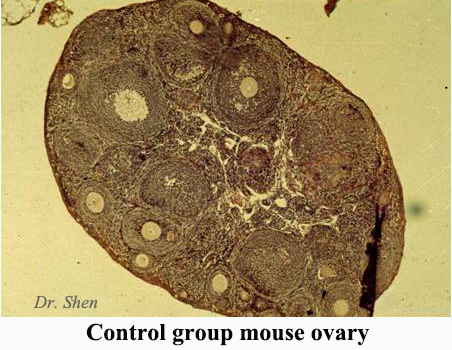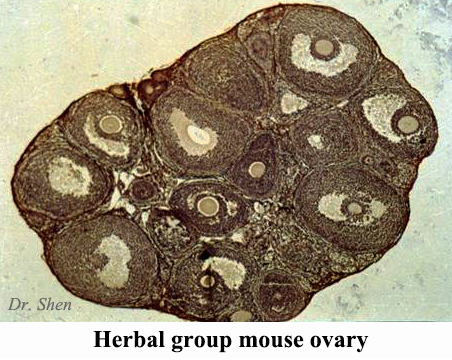Women's Health
Women's Health and Infertility
Infertility is a growing problem due to the choice of many to have children later in life. The impact of environmental and lifestyle factors influence both female and male reproductive systems. Many perceive in vitro fertilization (IVF) to be the last remaining hope as far as achieving a successful pregnancy goes. However, live birth rates from IVF range from 31.9% for 35-37 year old women to 12.5% for 41-42 year olds. Due to a significant amount of emotional and financial stress associated with IVF, many women now seek other treatment options in order to reduce stress levels, improve egg quality, and enhance their IVF success rates.
Acupuncture
Acupuncture is a common choice practiced among many. Randomized controlled trials (RCTs) investigating the impact of acupuncture on IVF have been undertaken. In 2002, German doctor Paulus and his colleagues published the first prospective study on the positive impact of acupuncture before and after embryo transfer. Pregnancy rates were compared within 160 IVF patients. The patients that received acupuncture treatments had a 42.5% clinical pregnancy rate compared to a 26.3% rate within the control group.This data is accessible to patients and biomedical practitioners and can be used as an endorsement for the use of acupuncture to improve IVF success rates.
Acupuncture is an ancient, therapeutic art, which has received renewed attention in light of recent scientific research. It is currently being integrated within modern medical practices for the treatment of a wide range of diseases, including infertility. In the past three decades, the practice of acupuncture has grown within the United States. According to the NIH(National Institutes of Health) Consensus Statement on Acupuncture, there have been many studies on acupuncture’s level of usefulness. It is proposed that acupuncture produces its effects through regulating the nervous and endocrine systems. This releases chemicals within the reproductive axis. There are twenty major pathways that Qi (energy flow) is believed to travel through and these pathways, or meridians, are accessible through 400 different acupuncture points. Acupuncture has shown effective results in controlled, scientific studies involving ovulation induction, endometriosis, PCOS, and male infertility.
Acupuncture is a common choice practiced among many. Randomized controlled trials (RCTs) investigating the impact of acupuncture on IVF have been undertaken. In 2002, German doctor Paulus and his colleagues published the first prospective study on the positive impact of acupuncture before and after embryo transfer. Pregnancy rates were compared within 160 IVF patients. The patients that received acupuncture treatments had a 42.5% clinical pregnancy rate compared to a 26.3% rate within the control group.This data is accessible to patients and biomedical practitioners and can be used as an endorsement for the use of acupuncture to improve IVF success rates.
Herbal Medicine
In China, herbal medicine has over two thousand years of history and is used extensively for the treatment of a wide range of gynecological conditions including both female and male infertility by balancing hormonal conditions. In this way, herbal medicine treats not only the symptoms, but the root cause of infertility. This significantly increases success rates.
Our clinic has more than 600 different herbs. An individual’s personal herbal formula contains at least 12 ingredients. Over the centuries, herbal prescriptions have continued to evolve thanks to prevailing theories, clinical evidence, and scientific research. In Dr. Shen’s animal studies, herbs have shown effective results related to inducing ovulation in mice, as shown in photos below.
A recent systematic review investigating the effect of Chinese herbal medicine on pregnancy rates compared to that of assisted reproductive technology intervention showed that Chinese herbal medicine improved pregnancy rates two-fold within a four month period versus only fertility drug therapy, or IVF. A recent review also demonstrated the effectiveness of Chinese herbal medicine for endometriosis.


The mechanisms through which herbal medicineand acupuncture influence female fertility are believed to involve the central stimulation of beta-endorphin secretions. This in turn impacts the GnRH pulse generator and thereby gonadotrophin and steroid secretions. Then a general sympatho-inhibitory effect occurs through increased blood flow to the uterus and ovaries, resulting in uterine conditions favoring implantation. Several potential mechanisms for its effects on fertility have been postulated: (1.)It improves ovary functions to help produce better quality eggs and a larger number of follicles. (2.) Increases blood flow to the uterus and therefore increases the uterine lining thickness. (3.) Improves male semen to create better quality and quantity of embryos.(4.) Lessens Western IVFdrug side effects. (5.) Decreases the chance of miscarriage. (6.) Regulates and balances hormones. (7.) Relaxes the patient and decreases her stress.
Our clinical experience indicates that Chinese herbs increase endometrial thickness, improve fertility and embryo quality, as well as promote embryonic implantation. This enhances the success rate of an IVF/ICSI/IUI cycle, even when taking the pharmaceutical drug Clomid. Chinese herbs can also help prevent uterine contractions, strengthen a patient’s immune system, and decrease the chance of miscarriage. In conclusion, Chinese herbs help to improve the outcome and safety of assisted reproductive technologies.
Early treatment enhances and improves the quality and quantity of oocytes. TCM has attached great importance to prevention. Therefore, three months before IVF treatment, we encourage the use of Chinese herbal medicine and/or acupuncture treatment to improve egg quality. This is especially important for patients with a diminished ovarian reserve.
Basal Body Temperature
Your basal body temperature (BBT) is your lowest body temperature in a 24-hour period. You will need to use a basal thermometer, which measures small changes in body temperature. Before ovulation, your BBT will probably range from 97.2 to about 97.7 degrees Fahrenheit. But the day after you ovulate, hormonal changes cause a rise of 0.4 to 1.0 degree in your BBT. You may notice your temperature spiking on other days here and there, but unless it stays up, you probably haven’t ovulated yet. If you become pregnant, your temperature will stay elevated throughout your pregnancy.
Benefits of Checking Basal Body Temperature
- Monitoring your ovulation.
- No side effects since this is a natural method.
- Estimates if you have any luteal phase defects.
- Women grow more knowledgeable about their body changes and canpredict their next menstruation.
How can you check your BBT?
- Check your temperature immediately after waking up and before getting out of bed. Make sure you’ve had at least six hours of sleep.
- Always use the same thermometer when measuring your BBT.
- Check your temperature at the same time each day.
- Take your temperature by mouth, under the tongue, and for the same time period.
Dr. Shen's Credentials
Dr. Shen is one of the most outstanding professionals in the field of both Eastern and Western Medicine with over 30 years of clinic experience. He received a Master’s Degree in Obstetrics and Gynecology (Ob/Gyn) at Nanjing University of TCM, China. Dr. Shen was a faculty member at Nanjing University’s Department of Ob/Gyn, where he joined the gynecology infertility team partaking in clinical work while educating and researching. He earned a Ph.D. Degree in Ob/Gyn, at Mie University School of Medicine, Japan. Dr. Shen also served as a fellow doctor at the Department of Gynecology, Tokyo University and completed his post-doctoral fellowship at the Vanderbilt University School of Medicine, Tennessee. He was a professor and clinical director at South Baylo University, School of Herbal Medicine and Acupuncture.
Dr. Shen is a well-trained reproductive field specialist as well as a renowned infertility and gynecology pioneer. He has contributed to a variety of scientific papers as well as research data on the treatment of infertility. His approach focuses on the use of herbal medicine and acupuncture.

